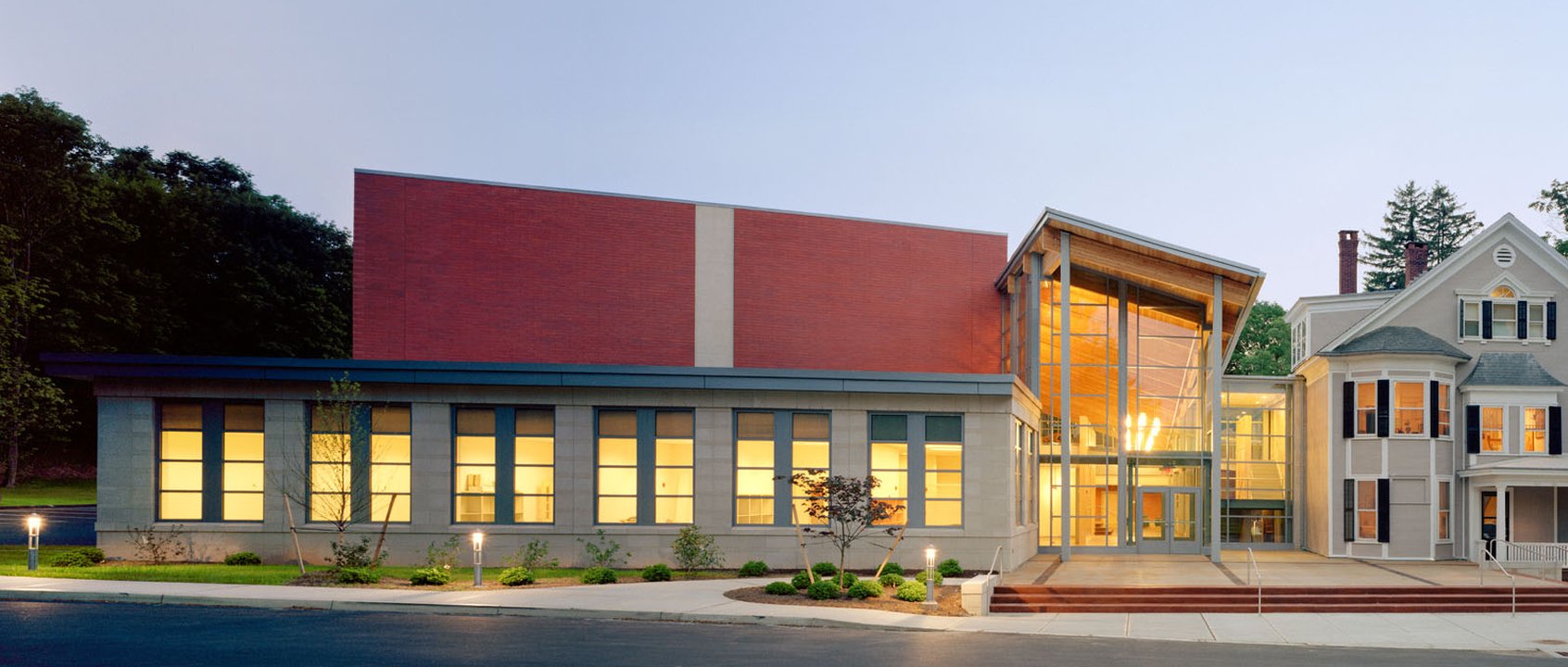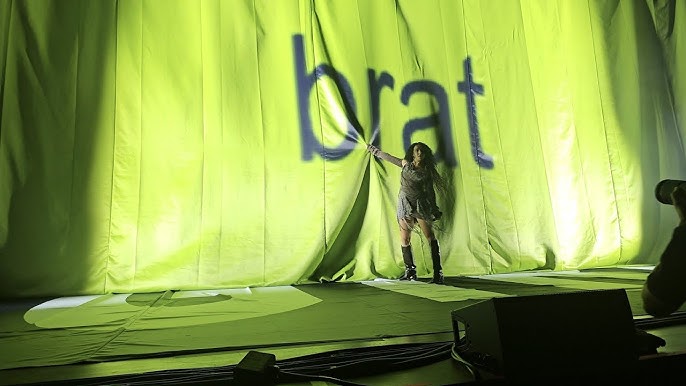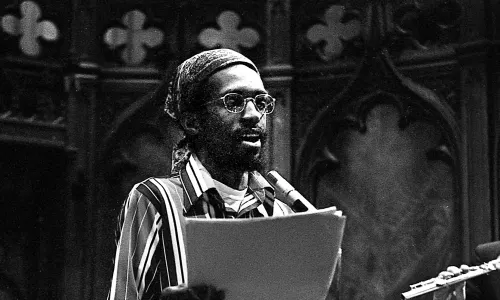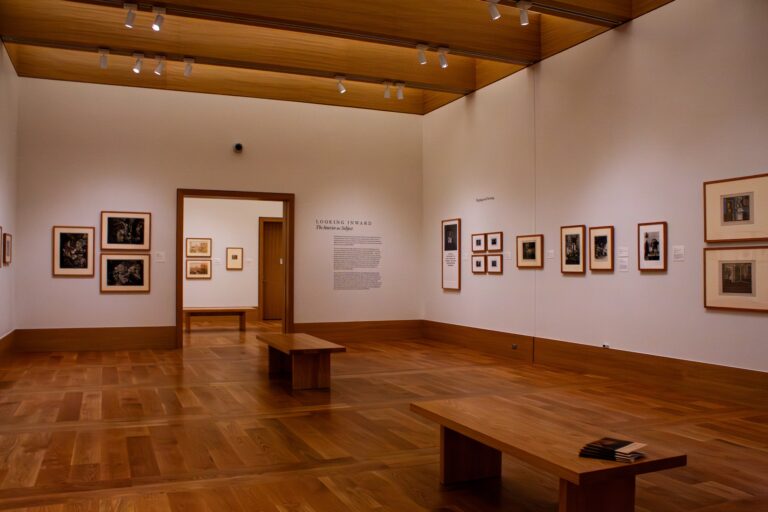Return of Film Series Brings a Diverse Array of In-Person Movie Offerings to Campus

After an 18-month break due to COVID-19, the long-running Wesleyan Film Series has made its triumphant return. With in-person gatherings once again permitted, the Film Series is bringing mostly free film screenings back to the newly-redubbed Jeanine Basinger Center for Film Studies on Thursday, Friday, and Saturday evenings throughout the fall. The Series made its debut on Sept. 9 with the classic 1952 musical “Singin’ in the Rain.”
The Film Board, the student organization behind the Film Series, along with their advisor, Assistant Professor of the Practice in Film Studies Marc Longenecker ’03, spoke with The Argus about putting together this semester’s programming. This year’s series brings together selections from around the world and across decades, as well as plenty of works by Wesleyan alumni.
The series is kicking off with the Basinger Legacy Series, a four-week lineup of films curated by Corwin-Fuller Professor of Film Studies, Emerita, Jeanine Basinger, founder of both the Film Series and the University’s College of Film and the Moving Image.
“She was teaching film at a time when that was not considered a reputable thing to do…[She] developed her own ideas about film analysis, and worked the last fifty to sixty years or so to build the film department you have at Wesleyan here today,” Longenecker said. “These are all things that connect in some way to Jeanine’s time here at Wesleyan…Some of them are movies that she’s used in class, a number of them are involved in major things that she did programming.”
“Singin’ in the Rain,” for instance, was chosen as the first screening of the semester as it was also the film that Basinger chose to open the Center for Film Studies in 2004.
“A number of the movies that we’re showing are products of our alumni in some way,” Longenecker continued.
Indeed, six of the films featured in the first month of the Film Series have a Wesleyan connection, including past screenings “Beatriz at Dinner,” written by Mike White ’92 and directed by Miguel Arteta ’89, “Time,” produced by Kellen Quinn ’05, and “Party Girl,” written and directed by Daisy von Scherler Mayer ’88.
Coming up, the Nicolas Cage action vehicle “National Treasure,” which was directed and produced by Jon Turtletaub ’85, will play on September 30. “In the Heights,” which will play on October 1, is based on the Broadway musical by Lin-Manuel Miranda ’02, who produced an early version of the show during his sophomore year at the University.
Longenecker cited “Beasts of the Southern Wild,” which was written and directed by Benh Zeitlin ’04 as an example of the peak of what Wesleyan alumni can do together.
“That’s a case of a number of our alumni working together collaboratively in a very original way and a very Wesleyan way,” Longenecker said. “That’s something where we’re really proud on their behalf of that movie.”
Beyond the Basinger Legacy Series, programming for the Film Series falls to the hands of the Film Board, although the members emphasized that their decisions are based on the wishes of the larger Wesleyan community.
“Most of the movies come from the suggestion boxes,” Umi Ito ’22 explained. “We try to think about which movie would bring the best community experience for Wes.”
According to student members, the board tries to choose a wide range of movie genres.
“We’re not just trying to give all comfort movies,” Asa Levite ’22 added. “Not to say that we don’t have them, because we absolutely do, but we’re [also] trying to show things that maybe Wes students don’t know that they want to see.”
Because the students that serve on the film board come from a variety of backgrounds, they are able to put their heads together in order to come up with a diverse range of film offerings for the series.
“We all have different bodies of knowledge when it comes to film,” Sophia Meloni ’24 said of the Film Board, “so [the Film Series] is reflective not only of capital-F ‘Film’ or ‘cinema’ but of movies that we all really like.”
With a diverse range of suggestions and tastes, programming the Film Series is a huge undertaking. Thursday screenings are the most eclectic, while Friday screenings often focus on more popular, recent films (the only ones which, at $5, are not free to attend), with Saturdays tending towards older films.
Between the suggestion boxes and the Film Board’s own wishes, a season’s programming typically begins with hundreds of potential films to be screened.
“We talk about every single title,” Hannah Carroll ’23 said. “By the time [a film] gets to our shortlist, we discuss which is the best fit depending on what’s already been programmed…we don’t want to have too much of one genre or one vibe in a week or in a row on the calendar. It’s about making sure the whole calendar is encompassing multiple views.”
To finalize programming, the board then turns to Longenecker, who works out the details of the screenings, such as finding staff and securing rights to show the movies in public.
When asked about their most anticipated upcoming screenings, members of the Film Board named “Mildred Pierce,” a studio-era noir starring Joan Crawford, the beloved Studio Ghibli animated adventure “Spirited Away,” classic news media satire “Network,” and the sweeping Palme d’Or-winning Yugoslavian historical epic “Underground,” which, though, lesser-known, has made appearances in Film Series past.
Longenecker spoke to the power of viewing movies in a theater setting.
“A movie theater is designed to remove the distraction, to make the movie the center of your attention, to make the scale of it much larger than you,” Longenecker said. “Movies are completely different experiences when seen start to finish without distraction, and giving yourself over to the work of the artists and craftspeople making them.”
The Film Board also stressed the importance of the social aspect of the Film Series.
“It’s like going to a party, but better,” Ito said. “You’re here with your friends, you have fun, you’re in the story together, if it’s a silly movie, you laugh together, if it’s sad you cry together, then you get out, you talk about it. You further deepen the connections you have with your friends.”
In an age of almost overwhelming choice between new releases and online streaming services, the curation and personal, Wesleyan-specific touch of the Film Series is comforting.
“You can go, have that experience, and let someone else design it for you,” Carroll said. “It’s part of a tradition.”
The Wesleyan Film Series holds screenings Thursdays, Fridays, and Saturdays at 8 PM in the Jeanine Basinger Center for Film Studies. For more information, visit https://www.wesleyan.edu/filmseries/.
Jacob Silberman-Baron can be reached at jsilbermanba@wesleyan.edu.
Oscar Kim Bauman can be reached at obauman@wesleyan.edu.








Leave a Reply